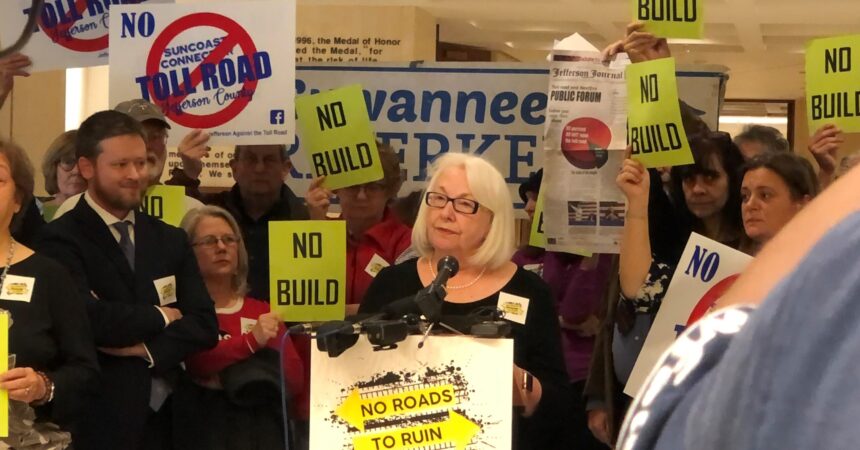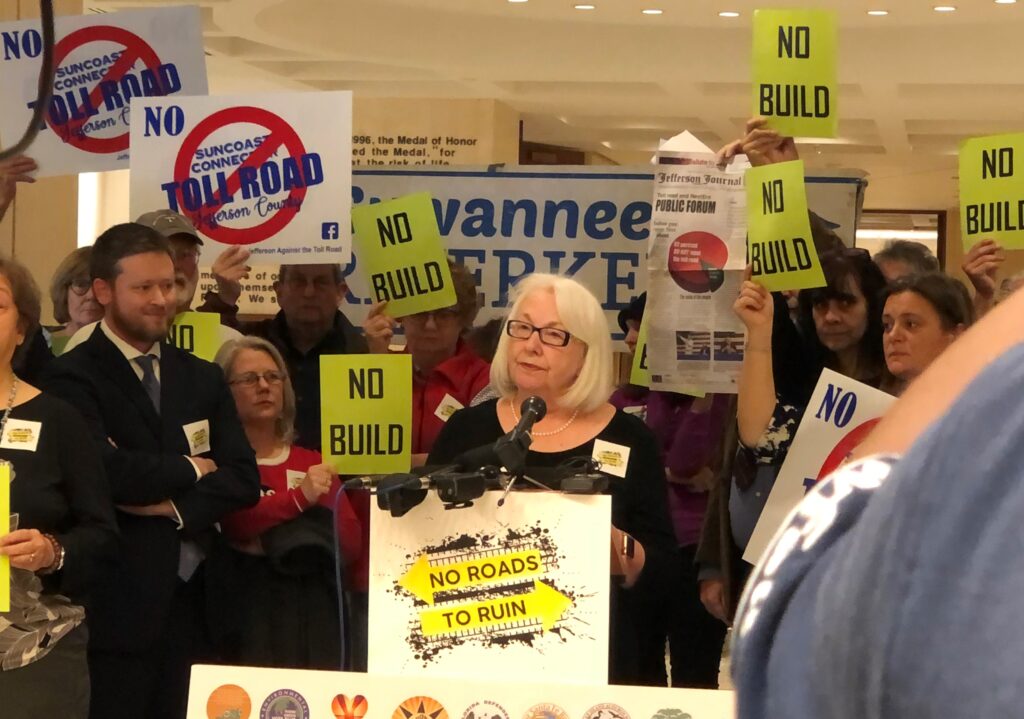
LWV Mission 1313 targets residents in Southside precinct

Photo submitted

Bob Rackleff 
Barb Licht
By St. Clair Murraine
Outlook Staff Writer
Exactly how much a current League of Women Voters (LWV) registration drive will affect the number of voters on the Southside of Tallahassee won’t be known until after the election in November.
But since the LWV launched what it is calling Mission 1313, its members are confident that newly registered voters participated in the primary and will vote in the general election. The area they are covering includes precinct 1313, which includes areas south and west of FAMU.
Precinct 1313 — the Providence and Elberta Empire neighborhoods — was recently added to the voter education drive that the LWV started in 2021. It is the first time that the League is targeting a specific community.
Since the campaign began, the primary target has been women between 18-40 years old. That was intentional, said Trish Neely, president of the Tallahassee LWV.
“If you look at that community and you look at the role that women play — particularly in some of our under-served communities — sometimes they are the primary bread winners, the person who makes the decisions for the family,” Neely said.
The initiative to register new voters became a priority after a study of precinct 1313 showed that people who vote represented 21 percent less than the general population of Leon County. The study also found that about 75 percent of the 3,500 registered voters in the area are Black.
Voting regulation changes that were put into law by legislators this past spring also makes the Mission 1313 even more important, said Neely. Some of the changes will affect polling places, voting districts and new polling places and even mail-in-ballots.
Since the voter information campaign began, the LWV have mailed out more than 600 post cards with hand-written voting information. They also used yard signs and door hangers to get the message out.
While a town hall-styled event might have brought some residents out, Neely said logistically it could be challenging for most people who live in the area.
“I think it was a night and day difference,” Neely said of the strategy the League is using. “There are people in the 1313 precinct that will never make it to a town hall event, even if we schedule it in the Bond community. Part of it is you are dealing with people who have limited resources. Some of them are working multiple jobs, have kids and they don’t have daycare.”
Social media is also in the mix, said Barb Licht, who is outreach coordinator for the League. She said a rap song has been posted on the organization’s social media page to encourage voting, but it’s unclear how many viewers actually live in precinct 1313.
Getting the information out is the main purpose, she said.
“We are not giving up,” Licht said. “We will keep going.”
The primary way of doing that is to use the old fashioned door-to-door approach. The League has also trained individuals to assist with on-line registration, which Licht said could be intimidating for first-time users.
But nothing beats going door-to-door.
“Virtually every canvasser who got to talk to people said they had an overwhelming positive reaction where they were just glad to know you care about me enough to knock on my door and tell me about voting in this election,” she said. “But there were a lot of doors where nobody answered and we had to move on.”
Bob Rackleff, a former Leon County commissioner who heads up the Big Bend Voting Rights Project, applaud the LWV’s effort.
His organization also goes into underserved areas to register voters. One of his major discoveries is that residents in areas like precinct 1313 usually don’t know who their elected officials are.
In turn, politicians tend to avoid those neighborhoods with few registered voters, said Rackleff, who has worked with the LWV in the past.
“That is simply a matter of how to cover the most ground effectively,” said Rackleff, who has had a few campaigns. “It doesn’t do anything to bring uninvolved persons into the process.”
Mission 1313 wants to change that, although the effectiveness won’t be known until after the general election.
“Success is going to mean even increasing it by 1 or 2 percent,” Neely said, “because you’ll be looking at an upward trend.”







